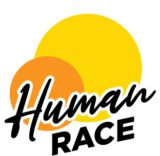Dr Mohammad Hafizur Rahman’s journey with Special Olympics Bangladesh is a testament to the positive impact an individual can make in driving inclusion and changing lives.
He first started his foray in working with people with intellectual disabilities (PWIDs) when he got involved with Special Olympics Bangladesh Young Athletes Program in 2012, an early childhood play program for children with and without intellectual disabilities and has not looked back since.
Over the course of the next decade, Dr Rahman, together with a team of Clinical Directors, volunteer health professionals that support Special Olympics programs, carried out multiple health education seminars and workshops for families. He also went on to conduct trainings for almost 300 physicians, healthcare professionals, fitness professionals and volunteers to support them in better understanding and managing the healthcare needs of people with intellectual disabilities.
Dr Hafizur also looks after the health issues of all the athletes from Special Olympics Bangladesh selected for World and Regional Games from 2011 to date. These duties include athletes’ health screenings, follow-up visits, on-site medical care and support in the training camps and competition venues.
Dr Hafizur admitted he initially lacked knowledge and experience in caring for People with Intellectual Disabilities (PWIDs). While he felt lacking at first, seeing the genuine impact his work made, kept him going and growing. After years of immense dedication, hard work and service, his efforts were acknowledged, and he represented Asia Pacific becoming the proud recipient of the Global Golisano Health Leadership Award in 2023 for Bangladesh.
As a Special Olympics Bangladesh Board member, internist and cardiologist, he plays a critical role in distilling, treating and educating others on the critical health issues concerning PWIDs. These efforts have contributed towards inclusion and improving the quality of care for PWIDs in his home country.
His motivations are simple, “I wanted to see if I could make a positive change for people with intellectual disabilities,” he explained.
“Through screening programs for athletes at lower costs, and with the support of dedicated volunteers, we enhance community health. Witnessing the joy of athletes and their families at events and their advocacy efforts, fuels my determination to continue forward,” he continued.
Over the years, Dr Hafizur’s involvement has deepened, with him taking on pivotal roles including Regional Clinical Advisor in Asia Pacific. The hospital partnerships he has helped forge have also enhanced healthcare accessibility and equitable care for individuals with intellectual disabilities, providing Special Olympics athletes access to discounted diagnostic tests at multiple establishments.
While there has been some progress made in progressing inclusive health, Dr Hafizur acknowledges the wider challenges in caring for PWIDs. For instance, while healthcare professionals may struggle to communicate effectively with their patients that have ID, athletes from lower socio-economic backgrounds correspondingly face financial barriers in accessing quality healthcare. This is where Special Olympics can make a difference he points out, by driving education, awareness and discourse through leading seminars, social media engagement, and hospital partnerships to improve quality healthcare access.
To Dr Hafizur, the most important requirement for healthcare allies are empathy and proactive engagement. He says, “We should be proactive, in bringing awareness to communities, and support PWIDs in coming forward in raising their voices to advance an equitable world for everyone.”
There is no prerequisite to being an ally. All you need is a willingness to try, in whatever capacity you can, to do better.
To know more, follow @humanraceasia and @soasiapacific.

